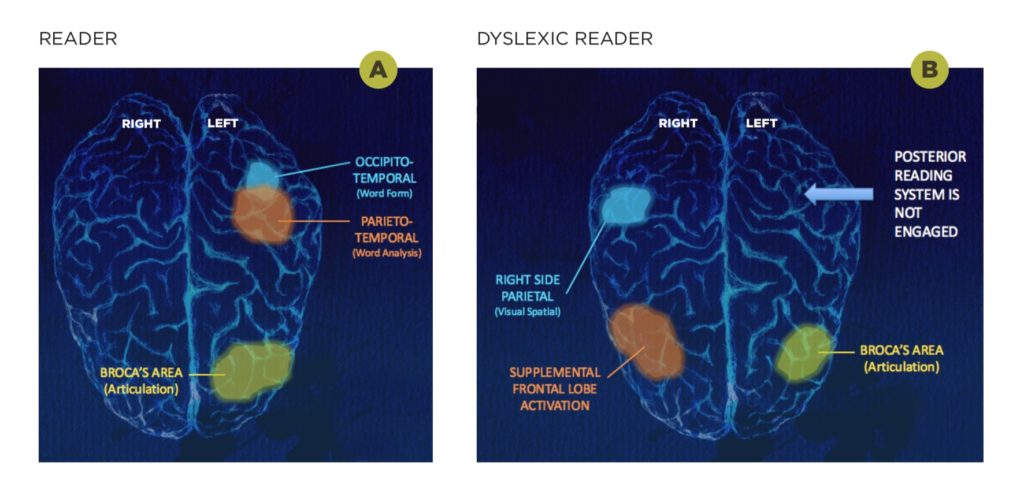Est. in Urbandale, Iowa – Serving Students Nationwide Through Online Tutoring
Est. in Urbandale, Iowa – Serving Students Nationwide Through Online Tutoring

“Dyslexia is a specific learning disability that is neurobiological in origin. It is characterized by difficulties with accurate and/or fluent word recognition and by poor spelling and decoding abilities. These difficulties typically result from a deficit in the phonological component of language that is often unexpected in relation to other cognitive abilities and the provision of effective classroom instruction. Secondary consequences may include problems in reading comprehension and reduced reading experience that can impede growth of vocabulary and background knowledge.”
Adopted by the IDA Board of Directors, Nov. 12, 2002. This Definition is also used by the National Institute of Child Health and Human Development (NICHD). Many state education codes, including New Jersey, Ohio and Utah, have adopted this definition.
Dyslexia is a heritable condition that is believed to be linked to three genes. It is neurobiological, and it is believed to be a different brain organization. It has been proven that people with dyslexia use areas on the right side of the brain to read, instead of the more efficient left side.
These difficulties will lead to reduced reading that impedes vocabulary growth, background knowledge and reading comprehension.
Dyslexia is often unexpected because it is not related to overall intelligence, and it will occur even with effective classroom instruction. A child who struggles with reading due to dyslexia typically has many intellectual strengths, and the trouble with reading, writing and spelling is typically a surprise to the child, the teacher and the parents. The unexpectedness of the problem will often cause anxiety, fear of school, behavior problems and shame because the child can see they are struggling when most others in the classroom are succeeding. Many children with dyslexia secretly fear they are dumb.
A child with dyslexia will not progress past a third-to-fifth grade reading level without intervention. It will be painful for the child to read, and dyslexia will inhibit self-esteem, vocabulary growth and reading comprehension as the child progresses through school.
At its root, dyslexia is considered a phonological impairment. Researchers know from fMRI studies of children, that a child with dyslexia is not accessing the phonological area on the left side of the brain to read.
People with dyslexia can improve their reading using programs that teach the brain to access the phonological areas on the left side of the brain. These programs will improve decoding, word recognition, and spelling. There are 34 Universities that are members of the National Institutes of Health that study dyslexia.
Now serving the entire US through online tutoring.
Sign up for our newsletter to receive the latest news on dyslexia, free dyslexia resources and exclusive access to new programs and classes.
© 2024 Aspire Academy – Dyslexia Screening and Dyslexia Tutoring